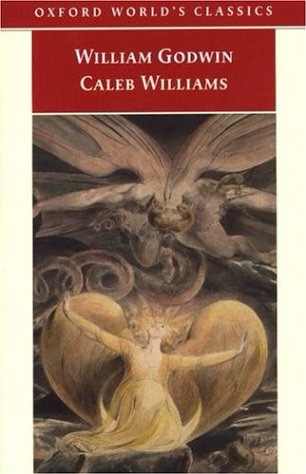
I’d never heard of the 18th century novelist William Godwin until a couple months ago when I read an essay by David Mamet. Mamet mentioned reading Godwin’s Caleb Williams. His mention of the book piqued my interest.
I looked for it at the library and saw that in the whole system of 22 libraries only one had this book. It is available through Penguin Classics, but as I noted, Godwin isn’t a household name.
I have been enthralled by this story. It’s a thrilling page-turner. Caleb Williams is a smart boy from the country who’s lost his family. He is sent to the estate of Mr. Falkland, a wealthy landowner, who’s admired by all who know him. All except Mr. Tyrell, a misanthrope of the first degree. Caleb is grateful to work for such a fine man.
Tyrell detests Falkland. Tyrell is obsessed with his hatred for Falkland and abuses those in his circle who show Falkland any positive regard. A plain-looking relative who’s been orphaned develops a fondness for Falkland and Tyrell abuses her and plans to set her up in a terrible marriage. Hawkins, a farmer, also incurs Tyrell’s wrath. In response Falkland helps these two, which only makes things worse.
Trouble comes to Caleb years after Tyrell is murdered and he accidentally discovers that Falkland isn’t the honorable man everyone believes. When Falkland learns of Caleb’s discovery Falkland is determined to see that Caleb never divulges what he’s learned. He takes this control to a brutal extent and no matter how fervently he begs, Caleb can’t escape Falkland’s control and abuse.
I pitied Caleb and was amazed by his ingenuity to try to escape and his dedication to not let Falkland’s maligning and psychological and legal abuse destroy his outlook.
Caleb Williams is a riveting quest for justice and tale of an innocent man imprisoned. I wish Masterpiece (Theater) would film it.




 “. . . humanity walks ever on a thin crust over terrific abysses.”
“. . . humanity walks ever on a thin crust over terrific abysses.” 







You must be logged in to post a comment.